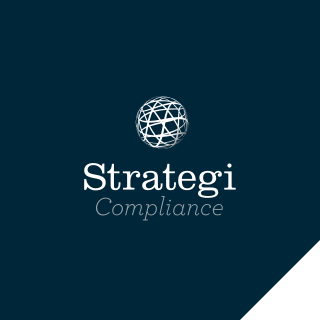Our experience indicates that reporting entities generally fall into two distinct camps:
1. Those that struggle with CDD: These businesses typically have paper based CDD processes, which are time consuming. As a result, staff find it frustrating and difficult to ask long-standing clients to prove their identity.
2. Those that automate CDD: These businesses use technology to undertake CDD and store client records. Meeting regulatory obligations is integrated into their day-to-day processes and staff time input is kept to a minimum.
If your business is caught under the Anti-Money Laundering and Countering Financing of Terrorism Act 2009 (AML/CFT Act), then you must comply with that Act, as the penalties for non-compliance can be painful- e.g. failing to conduct CDD as prescribed can incur fines up to $200,000 for an individual and up to $2 million for reporting entities. Therefore, it is worthwhile getting robust CDD processes in place, while simplifying these tasks at the same time.
In this article we will look at the benefits of digitising your CDD and some key considerations when it comes to selecting a provider.
Benefits of digitising CDD
Staff cost savings: A digital provider may charge a fee per client or a flat annual licence fee, but in most cases, this will be far less than the cost of a staff member undertaking the work and the time taken to train and supervise this staff member. A digital solution also makes it quicker for the AML/CFT compliance officer to undertake checks.
Reduced audit costs: Several AML/CFT digital providers have developed solutions which make it significantly faster for Strategi Compliance to complete the AML audit. This time saving translates to lower audit costs and the potential for larger sample sizes, enabling greater certainty of audit opinion.
Saving time and money: Time is money for businesses and clients so the quicker you can transact the business, the cheaper it is. Depending on your business and the nature of your clients, the time saving per client could be anything from 10 minutes to one hour in some instances.
Improved client experience: Clients are not subjected to having to provide copies of ID and proof of address. This enhances client relations and reduces a key ‘pain point’ of client onboarding.
Happier staff: It is fair to say that most staff involved with CDD find it uncomfortable and laborious, especially when they need to ask long-standing clients for proof of identity and address. If this imposition can be easily removed, then staff can better spend their time building client relationships.
Improved compliance: The single largest non-conformity issue we find when conducting AML/CFT audits relates to incorrectly conducting CDD. Selecting the right software provider can almost immediately remove this compliance issue and reduce the risk of non-compliance penalties.
Increased scalability: If your business is growing, then often more staff are needed to service new and existing clients. Using a suitable AML digital solution will enable you to keep expanding without needing those additional staff to meet the regulatory obligations.
How to choose an AML/CFT digital provider
There are several high-quality providers in the market, each with different services, support, and pricing on offer. One is not necessarily significantly better than the other. The key is to select a provider which can partner with your specific business to meet its current and foreseeable future, AML/CFT needs.
We recommend that you create a checklist to help you identify the right provider for your business and include the following:
- Request a written response regarding how the provider enables compliance with IVCOP and in particular the steps set out in clauses 17 and 18 of the IVCOP.
- Identify the level of AML/CFT risk to your business and the level of assurance you need an IT system to provide.
- Make a list of what a system MUST provide and what you would LIKE a system to provide (your needs and wants).
- Does the provider comply with your outsourcing policy?
- Does your business only have NZ clients, so that a limited sanctions list is acceptable?
- Can all CDD documents be stored electronically?
- Is access easy for the auditor?
- Is the system easy for staff to learn and use?
- Does the system conduct CDD and PEP checks?
- Does the system undertake prescribed transaction reporting?
- Are training registers provided or does the system link to Radar online AML/CFT training modules?
- Is transactional monitoring provided?
- Does the system provide the ability to store the AML/CFT programme and risk assessment?
While AML/CFT digital providers can help reduce business costs and business risk, plus improve the client experience, it is important to remember that the ultimate responsibility for CDD remains with you – the reporting entity.
Our team is well-versed in AML/CFT digital providers in New Zealand so if you are contemplating a move to digitisation, we can guide you in the right direction. Give our team a call for more information or if you have any questions.


